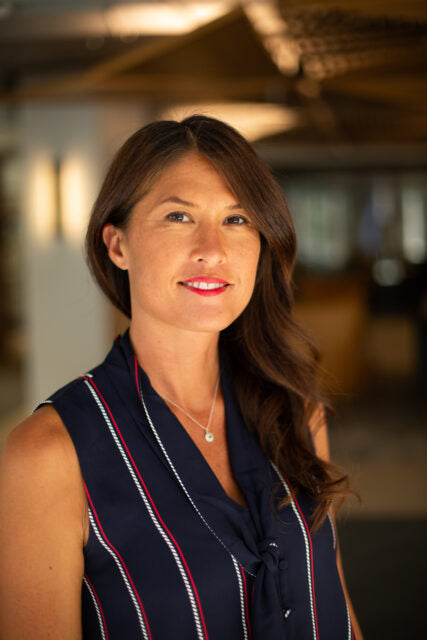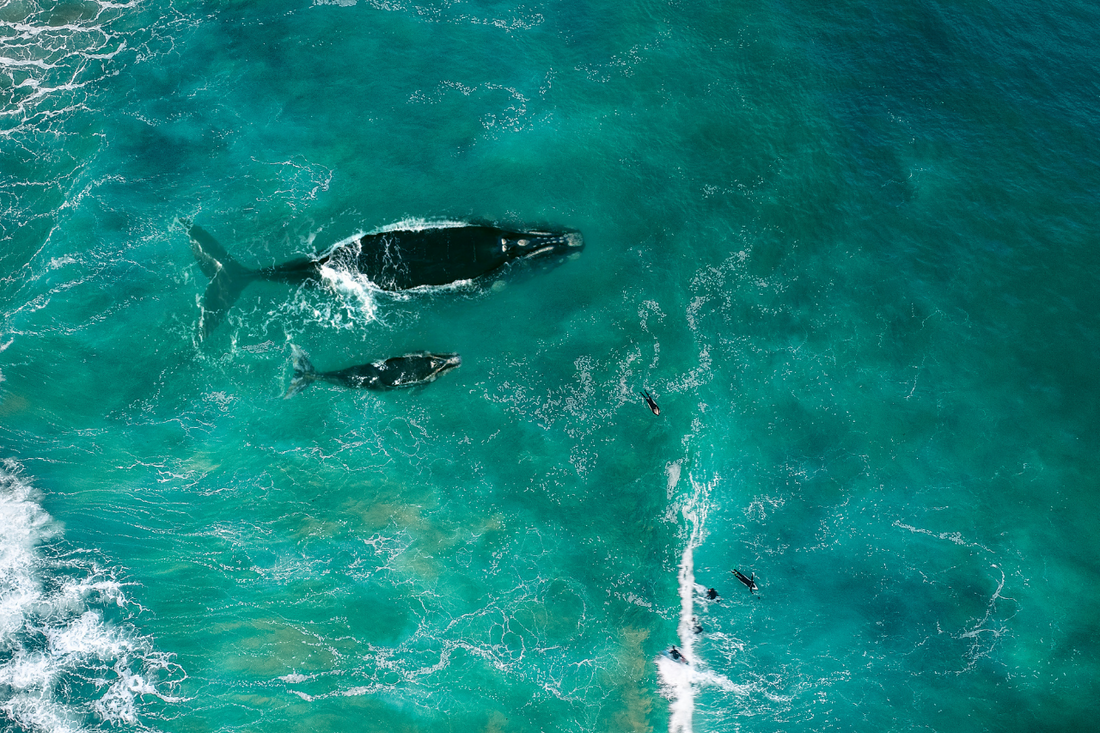 Catherine Uden | Field Representative, South Florida | Oceana Staff
Catherine Uden | Field Representative, South Florida | Oceana Staff
Meet Catherine Uden, Oceana Field Representative
In honor of Earth Day, we talked to four Oceana team members to learn more about their work, ocean conservation, and how we can all do our part to help. You can read other interviews from the series here, here, and here.
 Catherine Uden | Field Representative, South Florida | Oceana Staff
Tell us about your background. When and why did you first become interested in ocean conservation?
I live in South Florida and became interested in ocean conservation because of my experiences stand up paddling. There would be so much plastic debris in our waterways that I became concerned. I began hosting beach cleanups, and eventually helping to pass local plastic ordinances.
Can you share some of your favorite memories or milestones from your career thus far?
My favorite memories in my career are educating others about Oceana’s campaigns and teaching them how to take action in their own communities. I enjoy empowering others. It’s so great to see young people get engaged and seeing them discover that they can also help to pass policies to protect the oceans.
What does a typical day look like for you?
A typical day for me would be doing a presentation about plastic pollution, tabling an event, or meeting with lawmakers about Oceana’s campaigns. I also help share news and action alerts on Oceana in Florida’s social media accounts, as well as recruiting supporters to sign letters to Congress.
What do you think our most urgent global policy needs are in regard to ocean conservation?
I really hope that the US will step up and become a leader in fighting plastic pollution, specifically by reducing single-use plastics and moving towards reuse and refill systems. This will not only help with plastic in our oceans, but also will help with climate change, as plastic is made from fossil fuels. Plastic contributes an enormous amounts of greenhouse gases throughout its life cycle.
What individual actions can people take to help protect our oceans?
Individuals can find out who their elected officials are on the local, state, and federal levels, and contact them regularly. It’s important that your elected officials know what matters to you, and how you would like them to vote on bills relating to the oceans.
What’s something you wish more people knew about the oceans?
Our oceans sustain life on our planet, and so it’s important that we all work to protect our oceans.
What would you tell someone interested in pursuing a career similar to yours?
Before working for Oceana, I was a public-school teacher who just loved the ocean and the beach. I became highly involved volunteering for local environmental organizations and started attending trainings on advocacy on my free time. It’s so rewarding to have a career that’s meaningful and important. Let your passion guide your future. If you’re thinking about pursuing a career as a field organizer, get involved and learn from others who have experience winning victories. Take the lead in local campaigns in your community, and form relationships with coalition partners and elected officials.
Is there anything else you’d like us to share or think we should know?
Please follow Oceana on social media, sign up to be a Wavemaker, contact your elected officials, and sign our online petitions. You can make a difference for our oceans.
Catherine Uden | Field Representative, South Florida | Oceana Staff
Tell us about your background. When and why did you first become interested in ocean conservation?
I live in South Florida and became interested in ocean conservation because of my experiences stand up paddling. There would be so much plastic debris in our waterways that I became concerned. I began hosting beach cleanups, and eventually helping to pass local plastic ordinances.
Can you share some of your favorite memories or milestones from your career thus far?
My favorite memories in my career are educating others about Oceana’s campaigns and teaching them how to take action in their own communities. I enjoy empowering others. It’s so great to see young people get engaged and seeing them discover that they can also help to pass policies to protect the oceans.
What does a typical day look like for you?
A typical day for me would be doing a presentation about plastic pollution, tabling an event, or meeting with lawmakers about Oceana’s campaigns. I also help share news and action alerts on Oceana in Florida’s social media accounts, as well as recruiting supporters to sign letters to Congress.
What do you think our most urgent global policy needs are in regard to ocean conservation?
I really hope that the US will step up and become a leader in fighting plastic pollution, specifically by reducing single-use plastics and moving towards reuse and refill systems. This will not only help with plastic in our oceans, but also will help with climate change, as plastic is made from fossil fuels. Plastic contributes an enormous amounts of greenhouse gases throughout its life cycle.
What individual actions can people take to help protect our oceans?
Individuals can find out who their elected officials are on the local, state, and federal levels, and contact them regularly. It’s important that your elected officials know what matters to you, and how you would like them to vote on bills relating to the oceans.
What’s something you wish more people knew about the oceans?
Our oceans sustain life on our planet, and so it’s important that we all work to protect our oceans.
What would you tell someone interested in pursuing a career similar to yours?
Before working for Oceana, I was a public-school teacher who just loved the ocean and the beach. I became highly involved volunteering for local environmental organizations and started attending trainings on advocacy on my free time. It’s so rewarding to have a career that’s meaningful and important. Let your passion guide your future. If you’re thinking about pursuing a career as a field organizer, get involved and learn from others who have experience winning victories. Take the lead in local campaigns in your community, and form relationships with coalition partners and elected officials.
Is there anything else you’d like us to share or think we should know?
Please follow Oceana on social media, sign up to be a Wavemaker, contact your elected officials, and sign our online petitions. You can make a difference for our oceans.
 Catherine Uden | Field Representative, South Florida | Oceana Staff
Catherine Uden | Field Representative, South Florida | Oceana Staff